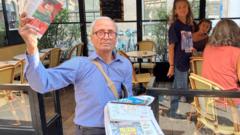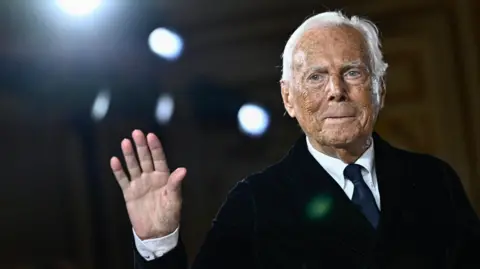Ali Akbar, the last remaining newspaper hawker in France, has been a fixture of Paris's Left Bank for over 50 years, earning him the respect and affection of many, including President Emmanuel Macron. At 72, Akbar will receive the prestigious Order of Merit, a symbol of his enduring contribution to French cultural life.
Reflecting on his career, Akbar noted, "When I began here in 1973, there were 35 or 40 of us hawkers in Paris. Now I am alone." He attributes his colleagues' disappearance to the shift toward digital media, lamenting that "people just want to consult their telephones." In his current routine, Akbar sells around 30 copies of Le Monde per outing, a stark contrast to when he would sell 80 copies within the first hour of an afternoon publication.
Despite the significant decrease in sales, Akbar remains undeterred. He expresses happiness in performing his work, stating, "I am a joyous person... I am completely independent." His charismatic personality has made him beloved among locals, who reminisce about growing up with him and enjoying his lively company.
Originally from Rawalpindi, Akbar arrived in Europe in the late 1960s, initially finding work on a cruise liner and eventually settling in Paris in the early 1970s. Over the years, he has served newspapers to various notable figures, developing relationships with numerous residents in the intellectual hub of Saint-Germain. However, he acknowledges a shift in the neighborhood's character, remarking that "the place had soul," which he feels has diminished over time, signifying broader changes in societal engagement and community atmosphere.
In this changing landscape, Akbar serves as a reminder of a bygone era in journalism and a connection to the cultural heart of Paris, encapsulated in the memories of his longstanding customers and friends.




















